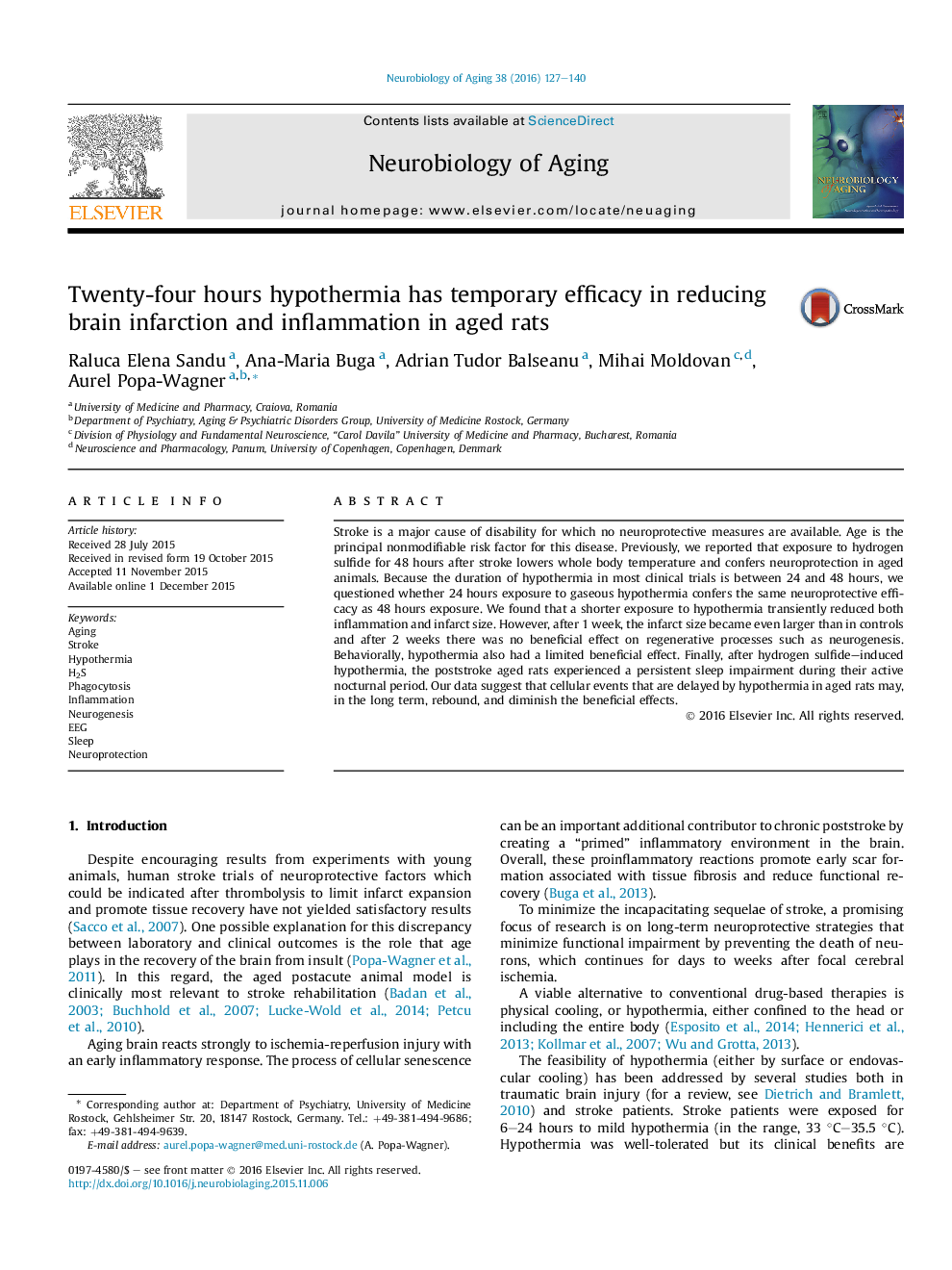| Article ID | Journal | Published Year | Pages | File Type |
|---|---|---|---|---|
| 6803662 | Neurobiology of Aging | 2016 | 14 Pages |
Abstract
Stroke is a major cause of disability for which no neuroprotective measures are available. Age is the principal nonmodifiable risk factor for this disease. Previously, we reported that exposure to hydrogen sulfide for 48Â hours after stroke lowers whole body temperature and confers neuroprotection in aged animals. Because the duration of hypothermia in most clinical trials is between 24 and 48Â hours, we questioned whether 24Â hours exposure to gaseous hypothermia confers the same neuroprotective efficacy as 48Â hours exposure. We found that a shorter exposure to hypothermia transiently reduced both inflammation and infarct size. However, after 1 week, the infarct size became even larger than in controls and after 2Â weeks there was no beneficial effect on regenerative processes such as neurogenesis. Behaviorally, hypothermia also had a limited beneficial effect. Finally, after hydrogen sulfide-induced hypothermia, the poststroke aged rats experienced a persistent sleep impairment during their active nocturnal period. Our data suggest that cellular events that are delayed by hypothermia in aged rats may, in the long term, rebound, and diminish the beneficial effects.
Related Topics
Life Sciences
Biochemistry, Genetics and Molecular Biology
Ageing
Authors
Raluca Elena Sandu, Ana-Maria Buga, Adrian Tudor Balseanu, Mihai Moldovan, Aurel Popa-Wagner,
